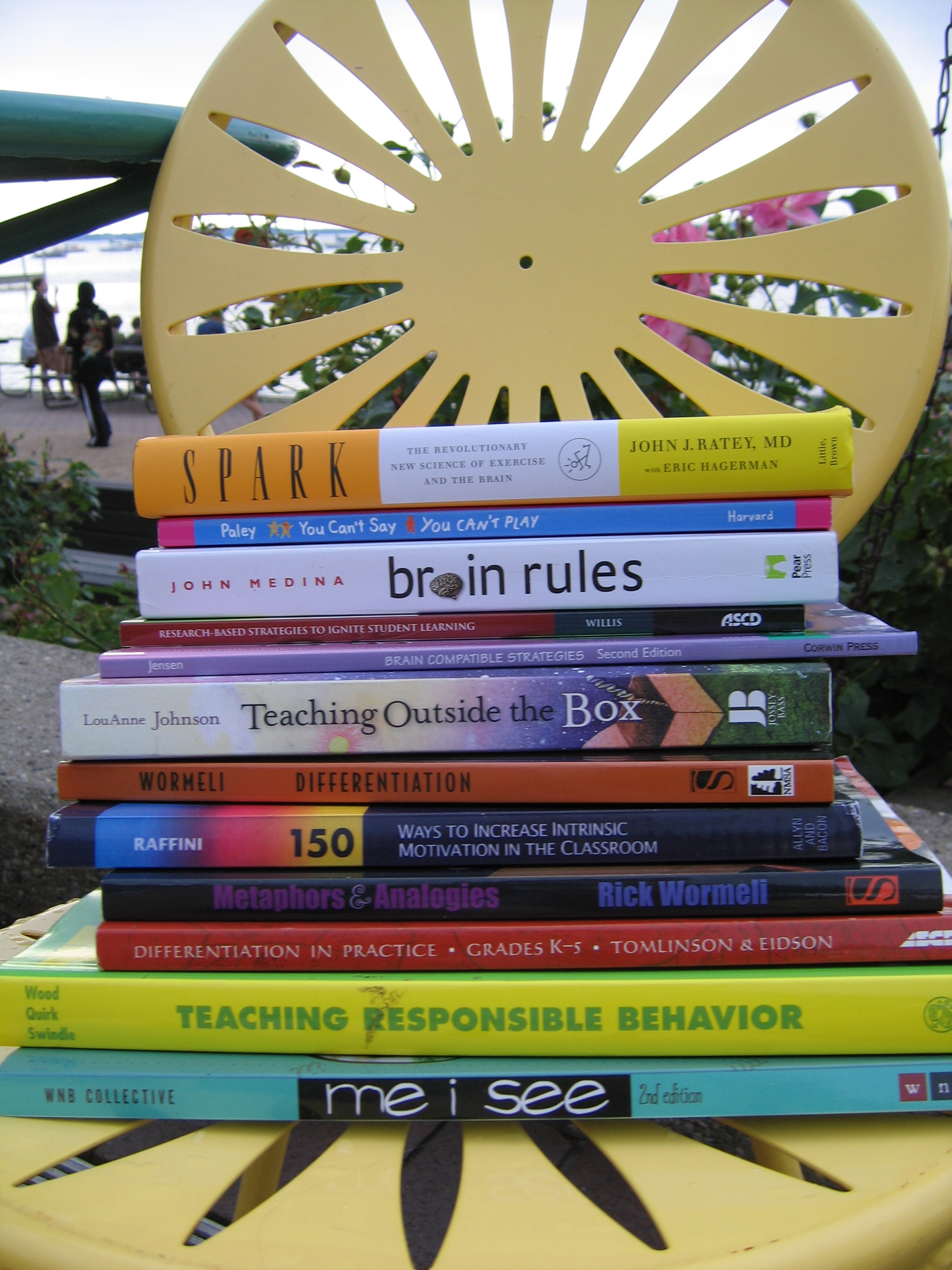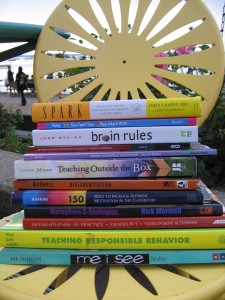
Jul 28, 2010 Summer Reading List: Books on the Brain and Learning
Summer Reading List
Books on the Brain and Learning:
Jen Stanchfield, M.S.

Summer is a great time to relax and rejuvenate. Many educators find that some time away from our students or clients is perfect for reflecting on our professional practice. It can be enjoyable to take some time to learn about new resources and information at a relaxed pace.
Along with some good novels, I have gathered a number of books on learning and leadership for my own summer reading time that many of you also might find interesting. In the next few posts I will share those that are at the top of my list.
I am especially hooked on books focused on the brain and educational practices. Recent information from neuroscientists about ideal learning environments and teaching strategies supports the tenets of experiential education. It is intriguing that the ideas about teaching John Dewey and his peers put forward almost a century ago are now being validated through scientific research on the brain and learning.
Here are a few books on the subject that make for an engaging and informative summer read:
Brain Rules: 12 Principles for Surviving and Thriving at Work, Home, and School by John Medina
I first heard about this book on a radio show arguing for educators to re-think Powerpoint presentations. The author John Medina writes “Toss your PowerPoint presentations. Powerpoint is text-based (the typical having nearly 40 words per slide), with six hierarchical levels of chapters and subheads — all words. Professionals everywhere need to know about the incredible inefficiency of text-based information and the incredible effects of images. Burn your current PowerPoint presentations and make new ones.” This statement and his discussion of communicating more with pictures than with words caught my attention (especially of course since it supported my own opinions on the subject.)
When I saw the book in the airport bookstore a year ago I picked it up and started reading it on the plane. Medina’s engaging and humorous style drew me in. He shares many real-life examples of the implications of neuro-scientific findings on the brain and learning, memory and retention. I made many notes in the margins regarding practical strategies that could help me improve my presentation skills to better reach learners and help them retain information. It has moved to the top of my pile and I’ve cracked it open again as I am starting to plan some of my fall in-service programs.
Research-Based Strategies to Ignite Learning by Judy Willis M.D
Insights from a Neurologist and Classroom Teacher
Judy Willis, the author of this book has a very interesting background. She initially practiced 15 years as a Neurologist before becoming a classroom teacher. Her expertise in both of these areas provides the useful insights and practical strategies that make up this book. The book focuses on blending neuroscience and teaching practice, helping educators use strategies to help students learn in her words: “most effectively and joyfully”. She specifically mentions experiential learning as a key approach to creating engaging lessons that will be retained. This is a short summer read that will give educators distilled and easy to understand information about the brain and learning and useful ideas to bring back to your practice. Though the book is targeted to classroom teachers the content is useful for any educator and applicable to all age groups.
How the Brain Learns by David Sousa
I read the first edition of this book about 10 years ago, it was one of the first I picked up on the subject of neuroscience research and its implications for educators(along with Eric Jensen’s, Teaching with the Brain in Mind.) I remember my excitement about finding that research on the brain was starting to support the experiential approaches that I could see were working with learners in my own groups and classrooms. This book not only validated some of the techniques that I could see were working, it helped me reflect on and improve my teaching and group facilitation methods to become more “brain-friendly”. Sousa offers a nice blend of theory and practical applications. I am interested in re-reading the latest edition to gain new perspectives and updated information.
SPARK, The Revolutionary New Science of Exercise and the Brain by John J. Ratey, M.D.
This is a bestseller that you will see on the shelves of most bookstores these days. It was originally marketed as a self- improvement book focusing on the mind-body connection in relation to stress-reduction, memory boosting and reducing depression. It has become popular with educators, managers and trainers from a variety of fields because of its practical applications. I found the author’s overview of the brain function, brain research history helpful in understanding some of the language of neuroscience. His chapter on learning, and information about ADHD interesting is especially relevant and useful for educators.
The book has been a hit with many physical educators as the book focuses on how neuroscience is demonstrating that movement is critical for human cognitive performance. Many educators will find Ratey’s case study of Naperville, Illinois School District’s fitness program (which he argues has put this school district of 19,000 kids first in the world of science test scores) compelling in this day and age of reduced funding for physical education.
It is an exciting time to be in the field of education. These are just a few of many great books and resources on the ever growing field of information on the brain and learning.
Please share what you have been reading this summer!
References:
Medina, John. (2008). Brain Rules: 12 Principles for Surviving and Thriving at Work, Home and School. Seattle, WA: Pear Press.
Ratey, John. (2008). Spark: The Revolutionary New Science of Exercise and the Brain. New York: Little Brown and Company.
Sousa, David. (2006). How the Brain Learns. Thousand Oaks, CA: Corwin Press.
Willis, Judy. (2006). Research-Based Strategies to Ignite Student Learning. Alexandria, VA: ASCD.



michael cardus
Posted at 04:58h, 29 JulyAll great books…John Medina Brain Rules is excellent.
Another book I recommend is Switch by Chip & Dan Heath.
It has pragmatic application for change in orgs and personal lives. I have refocused much of my facilitation from that book.
Jamie Resker
Posted at 18:51h, 05 AugustHi Jen, Thanks for sharing your reading list. I’ve been following the work of David Rock for the past few years and the Neuroleadership Summit will be held in Boston this October. I’m reading his book Quiet Leadership.
admin
Posted at 05:53h, 19 AugustHi Jamie,
Thanks for your comment. I would like to learn more about the Neuroleadership Summit. I will check out David Rock’s book, thanks for the suggestion.
Jen